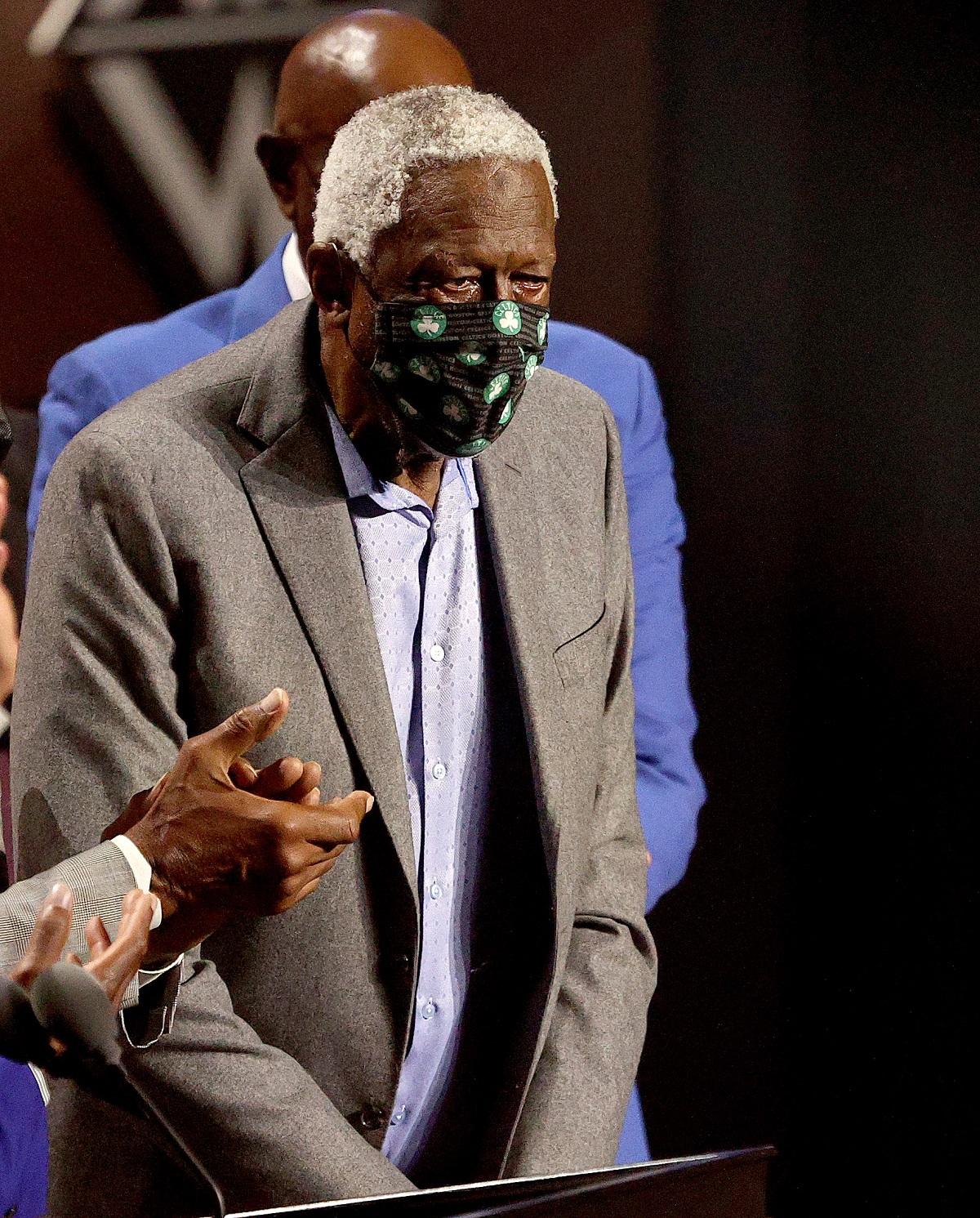NBA great Bill Russell dead at 88

Former Boston Celtics star Bill Russell, one of the sports world's greatest winners as the anchor of a team that won 11 NBA championships, as well as the league's first black coach, died on Sunday at the age of 88.
Russell, who was also outspoken on racial issues, passed away peacefully with his wife Jeannine by his side, according to a statement posted on his Twitter account that did not state a cause of death.
An announcement… pic.twitter.com/KMJ7pG4R5Z
— TheBillRussell (@RealBillRussell) July 31, 2022
Considered the greatest defensive center in basketball history, Russell turned the Celtics into a powerhouse that won eight consecutive titles from 1959 to 1966.
A five-time NBA MVP and 12-time All-Star, Russell was also the first Black head coach in North American professional sports history and helped the Celtics win two more titles.
Before all this, Russell won two NCAA championships at the University of San Francisco and led the team to 55 straight wins. He also led the United States to a gold medal in men's basketball in the 1956 Olympics in Melbourne, Australia.
A member of the NBA's 25th, 50th and 75th anniversary teams, Russell was as well known for his commitment to social justice.
"Bill Russell was the greatest champion in all of team sports," NBA commissioner Adam Silver said. "The countless accolades that he earned for his storied career with the Boston Celtics—including a record 11 championships and five MVP awards—only begin to tell the story of Bill's immense impact on our league and broader society.
"Bill stood for something much bigger than sports: the values of equality, respect and inclusion that he stamped into the DNA of our league. At the height of his athletic career, Bill advocated vigorously for civil rights and social justice, a legacy he passed down to generations of NBA players who followed in his footsteps. Through the taunts, threats and unthinkable adversity, Bill rose above it all and remained true to his belief that everyone deserves to be treated with dignity."
NBA Commissioner Adam Silver's statement regarding the passing of Bill Russell. pic.twitter.com/3BcZDnKjxK
— NBA (@NBA) July 31, 2022
Russell averaged 15.1 points and 22.5 rebounds over 13 seasons (1956-69) with the Celtics. He was first inducted to the Basketball Hall of Fame as a player in 1975, then again as a coach in 2021.
His No. 6 jersey is retired by the Celtics.
"But for all the winning, Bill's understanding of the struggle is what illuminated his life," read the statement from his Twitter account. "From boycotting a 1961 exhibition game to unmask too-long-tolerated discrimination, to leading Mississippi's first integrated basketball camp in the combustible wake of Medgar Evers' assassination, to decades of activism ultimately recognized by his receipt of the Presidential Medal of Freedom in 2010, Bill called out injustice with an unforgiving candor that he intended would disrupt the status quo, and with a powerful example that, though never his humble intention, will forever inspire teamwork, selflessness and thoughtful change.
"Bill's wife, Jeannine, and his many friends and family thank you for keeping Bill in your prayers. Perhaps you'll relive one or two of the golden moments he gave us, or recall his trademark laugh as he delighted in explaining the real story behind how those moments unfolded. And we hope each of us can find a new way to act or speak up with Bill's uncompromising, dignified and always constructive commitment to principle. That would be one last, and lasting thing, for our beloved #6."
Russell became a superstar in the 1950s and '60s not with flashy scoring plays but through dominating rebounding and intense defensive play that reshaped the game. He also had what team mate Tom Heinsohn called "a neurotic need to win."
The Russell-era Celtics teams were rich in talent. Heinsohn, Bob Cousy, Frank Ramsey, Bill Sharman, Tom "Satch" Sanders, John Havlicek, Don Nelson, Sam Jones and K.C. Jones, his old college team mate, would all join him in the NBA Hall of Fame, as would their coach, Red Auerbach.
But Russell's rebounding and defense, especially his shot-blocking, were unprecedented and set him apart. Russell, who was spindly compared to opponents at the center position when he came into the NBA, would leap to block opponents' shots at a time when the prevailing defensive philosophy was that players generally should not leave their feet.
"Russell defended the way Picasso painted, the way Hemingway wrote," Aram Goudsouzian said in his book "King of the Court: Bill Russell and the Basketball Revolution." "In time, he changed how people understood the craft. Until Russell, the game stayed close to the floor. No longer." — Field Level Media/Reuters




